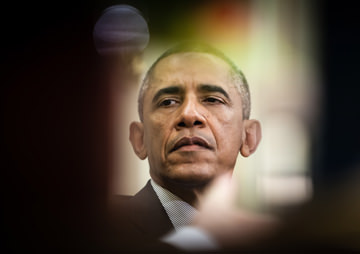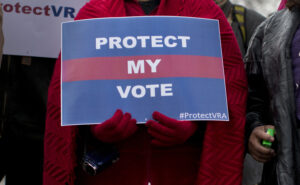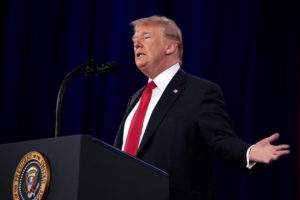‘An Affront to Our Humanity’: Obama Bans Solitary for Children
In an op-ed for The Washington Post, the president outlined new measures to curb the use of isolation in federal prisons. Drop of Light / Shutterstock.com
Drop of Light / Shutterstock.com
By Nadia Prupis / Common Dreams
President Barack Obama is banning the use of solitary confinement for juveniles and low-level offenders in U.S. federal jails, a measure that the ACLU said could save thousands from “needless suffering and permanent psychological damage.”
In an op-ed for The Washington Post published Monday night, Obama invoked the story of Kalief Browder, who at 16 was sent to Rikers Island for allegedly stealing a backpack, and spent the next three years—much of it in solitary—awaiting a trial that never came. In June of 2015, two years after his release, Browder committed suicide.
The controversial practice of holding people in isolation for 23 hours a day is “increasingly overused on people such as Kalief, with heartbreaking results—which is why my administration is taking steps to address this problem,” Obama wrote, calling the use of solitary “an affront to our common humanity.”
The reforms include “banning solitary confinement for juveniles and as a response to low-level infractions, expanding treatment for the mentally ill and increasing the amount of time inmates in solitary can spend outside of their cells,” he wrote. “These steps will affect some 10,000 federal prisoners held in solitary confinement—and hopefully serve as a model for state and local corrections systems.”
All relevant federal agencies will be required to review those measures and craft a plan to address their use of solitary, he said.
Current data estimates there are between 80,000 and 100,000 people being held in isolation in U.S. prisons, including children, a large portion of whom are serving long-term sentences. According to Amnesty International, the average length of time an individual is held in solitary in the U.S. is 8.2 years.
ACLU’s National Prison Project director David Fathi said Monday that Obama’s new measure “will put critical limits on solitary confinement in our federal prisons, restrictions that will save thousands of prisoners from needless suffering and permanent psychological damage.”
Human rights advocates have long said that solitary is a form of torture, while numerous studies have found that the practice is likely to have negative impacts on prison and public safety. Referring to this growing body of evidence, Obama wrote:
The United States is a nation of second chances, but the experience of solitary confinement too often undercuts that second chance. Those who do make it out often have trouble holding down jobs, reuniting with family and becoming productive members of society. Imagine having served your time and then being unable to hand change over to a customer or look your wife in the eye or hug your children.
[….] How can we subject prisoners to unnecessary solitary confinement, knowing its effects, and then expect them to return to our communities as whole people? It doesn’t make us safer. It’s an affront to our common humanity.
The measure is long in the making. In July of 2015, Obama became the first sitting president to visit an American prison and question the use of isolation, prompting over a hundred rights groups to publicly urge him to take immediate action ending the practice. Just days before that visit, he gave a speech to the annual convention of the NAACP in Philadelphia in which he called for an end to mass incarceration and restoration of voting rights to those who serve their time.
“With these reforms, the president has added the full weight of the United States government to the movement to end our jails and prisons’ addiction to solitary and its cruelty,” Fathi said Monday. “We have lost too many to a punishment that hurts us all.”
Your support matters…Independent journalism is under threat and overshadowed by heavily funded mainstream media.
You can help level the playing field. Become a member.
Your tax-deductible contribution keeps us digging beneath the headlines to give you thought-provoking, investigative reporting and analysis that unearths what's really happening- without compromise.
Give today to support our courageous, independent journalists.








You need to be a supporter to comment.
There are currently no responses to this article.
Be the first to respond.